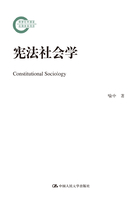Bishop Pellicier fell under suspicion of heresy: very probably with some justice. He fell, too, under suspicion of leading a life unworthy of a celibate churchman, a fault which--if it really existed--was, in those days, pardonable enough in an orthodox prelate, but not so in one whose orthodoxy was suspected. And for awhile Pellicier was in prison. After his release he gave himself up to science, with Rondelet and the school of disciples who were growing up around him. They rediscovered together the Garum, that classic sauce, whose praises had been sung of old by Horace, Martial, and Ausonius; and so child-like, superstitious if you will, was the reverence in the sixteenth century for classic antiquity, that when Pellicier and Rondelet discovered that the Garum was made from the fish called Picarel--called Garon by the fishers of Antibes, and Giroli at Venice, both these last names corruptions of the Latin Gerres--then did the two fashionable poets of France, Etienne Dolet and Clement Marot, think it not unworthy of their muse to sing the praises of the sauce which Horace had sung of old. Aproud day, too, was it for Pellicier and Rondelet, when wandering somewhere in the marshes of the Camargue, a scent of garlic caught the nostrils of the gentle bishop, and in the lovely pink flowers of the water-germander he recognised the Scordium of the ancients.
"The discovery," says Professor Planchon, "made almost as much noise as that of the famous Garum; for at that moment of ***** fervour on behalf of antiquity, to re-discover a plant of Dioscorides or of Pliny was a good fortune and almost an event."I know not whether, after his death, the good bishop's bones reposed beneath some gorgeous tomb, bedizened with the incongruous half-Pagan statues of the Renaissance; but this at least is certain, that Rondelet's disciples imagined for him a monument more enduring than of marble or of brass, more graceful and more curiously wrought than all the sculptures of Torrigiano or Cellini, Baccio Bandinelli or Michael Angelo himself. For they named a lovely little lilac snapdragon, Linaria Domini Pellicerii--"Lord Pellicier's toad-flax;"and that name it will keep, we may believe, as long as winter and summer shall endure.
But to return. To this good Patron--who was the Ambassador at Venice--the newly-married Rondelet determined to apply for employment; and to Venice he would have gone, leaving his bride behind, had he not been stayed by one of those angels who sometimes walk the earth in women's shape. Jeanne Sandre had an elder sister, Catharine, who had brought her up. She was married to a wealthy man, but she had no children of her own. For four years she and her good husband had let the Rondelets lodge with them, and now she was a widow, and to part with them was more than she could bear. She carried Rondelet off from the students who were seeing him safe out of the city, brought him back, settled on him the same day half her fortune, and soon after settled on him the whole, on the sole condition that she should live with him and her sister. For years afterwards she watched over the pretty young wife and her two girls and three boys--the three boys, alas! all died young--and over Rondelet himself, who, immersed in books and experiments, was utterly careless about money; and was to them all a mother--advising, guiding, managing, and regarded by Rondelet with genuine gratitude as his guardian angel.
Honour and good fortune, in a worldly sense, now poured in upon the druggist's son. Pellicier, his own bishop, stood godfather to his first-born daughter. Montluc, Bishop of Valence, and that wise and learned statesman, the Cardinal of Tournon, stood godfathers a few years later to his twin boys; and what was of still more solid worth to him, Cardinal Tournon took him to Antwerp, Bordeaux, Bayonne, and more than once to Rome; and in these Italian journeys of his he collected many facts for the great work of his life, that "History of Fishes" which he dedicated, naturally enough, to the cardinal.
This book with its plates is, for the time, a masterpiece of accuracy. Those who are best acquainted with the subject say, that it is up to the present day a key to the whole ichthyology of the Mediterranean. Two other men, Belon and Salviani, were then at work on the same subject, and published their books almost at the same time; a circumstance which caused, as was natural, a three-cornered duel between the supporters of the three naturalists, each party accusing the other of plagiarism. The ****** fact seems to be that the almost simultaneous appearance of the three books in 1554-55 is one of those coincidences inevitable at moments when many minds are stirred in the same direction by the same great thoughts--coincidences which have happened in our own day on questions of geology, biology, and astronomy; and which, when the facts have been carefully examined, and the first flush of natural jealousy has cooled down, have proved only that there were more wise men than one in the world at the same time.
And this sixteenth century was an age in which the minds of men were suddenly and strangely turned to examine the wonders of nature with an earnestness, with a reverence, and therefore with an accuracy, with which they had never been investigated before. "Nature," says Professor Planchon, "long veiled in mysticism and scholasticism, was opening up infinite vistas. A new superstition, the exaggerated worship of the ancients, was nearly hindering this movement of thought towards facts. Nevertheless, Learning did her work. She rediscovered, reconstructed, purified, commented on the texts of ancient authors. Then came in observation, which showed that more was to be seen in one blade of grass than in any page of Pliny.















